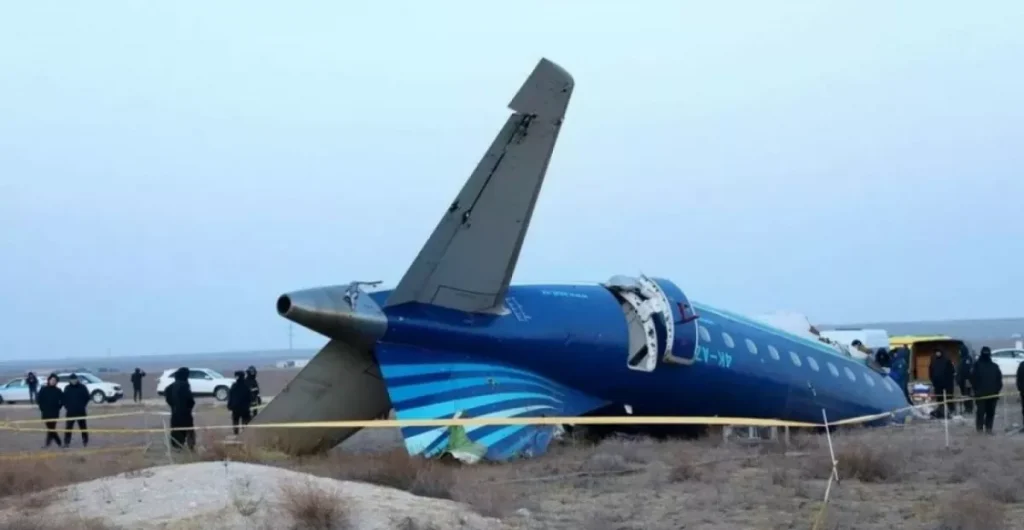At one point, Barbara Kellerman, founder and executive director of Harvard Kennedy School’s Center for Public Leadership, emphasized that ”When we wrong someone we know, even unintentionally, we are generally expected to apologize. The person we hurt feels entitled to an admission of error and an expression of regret.”
She went on to specify that any leader, even a controversial one, can earn the public’s sympathy through timely repentance, but a delayed or insincere apology can irreparably damage their reputation and tarnish the entire organization. While Kellerman was referring to a particular type of serious, perhaps ”collective” organization, we can agree that a similar principle applies in diplomatic etiquette, if you will. Or, perhaps, in the broader framework of basic decorum?
In this context, we (and not only we) clearly remember how, in November 2020, the Azerbaijani Ministry of Foreign Affairs issued an apology for the downing of a Russian Mi-24 military helicopter. It was revealed that the helicopter was flying in close proximity to the Armenia-Azerbaijan border at the time of active combat clashes. It was also clarified that the flight took place during the night, at low altitude, outside the air defence radar coverage area, and that Russian Air Force helicopters had not previously been observed in the area.
Due to the ”tense situation in the region and increased combat readiness in connection with possible provocations by the Armenian side,” the decision to open fire on the helicopter was made by the on-duty combat crew. In light of ”this tragic incident, which is accidental and was not directed against the Russian side,” Baku issued an apology, expressing sincere condolences to the families of the deceased crew members and wishing a speedy recovery to the injured. Furthermore, the Azerbaijani side expressed its readiness to provide appropriate compensation.
In the context of the situation at hand, one can also recall the apology (with expressions of regret) issued by Ankara to Moscow in 2016 for the downing of a Russian aircraft. The message also conveyed sympathy and deep condolences to the family of the deceased Russian pilot.
From this perspective, Baku is certainly entitled to expect similar steps from Russia regarding the tragic incident on December 25—the crash of an Azerbaijan Airlines plane, downed by a Russian surface-to-air missile, which resulted in the death of 38 passengers. It was only thanks to the exceptional professionalism of the pilots that 29 lives were saved in the air, along with a significant number of innocent lives on the ground, which could have been lost had the aircraft been forced to land in a densely populated area. However, Captain Igor Kshnyakin heroically averted this threat. As pointed out in the immediate aftermath by Kazakhstan’s Deputy Minister of Transport, Talgat Lastaev, after entering Kazakhstan’s airspace, the Azerbaijani airliner made two turns near Aktau Airport, crashing on the third, but there was no threat to residential areas.
And this, by the way, also raises a key question—why was the downed aircraft, on Russian territory, not granted permission to land at any of Russia’s runways? Who prevented this and on what grounds, causing the pilots to divert to Kazakhstan while flying a damaged aircraft over maritime space?
The question is not about any intentional action on the part of Russia, as there was none in the Turkish case in 2016, nor in the Azerbaijani case in 2020. However, the fact remains: both Ankara and Baku adhered to the proper etiquette in such cases. Yes, some may argue that this is a matter of diplomatic etiquette, but here, the emphasis undoubtedly lies more on humanity. On December 25, innocent civilians of different nationalities and religions lost their lives, including citizens of Azerbaijan, Kazakhstan, Kyrgyzstan, and Russia. Moreover, the death toll could have been much higher had it not been for the exceptional skill of the pilots.
Russian sources, based on a statement by the Secretary of the Security Council of the Chechen Republic, Khamzat Kadyrov, clarified that on December 25, drones were shot down by air defence systems (ADS) in Chechnya. In particular, his post reads: ”The information that drones hit any object is false. Everything has been shot down!” It is quite telling that Russian media, noting previous reports from Grozny residents about hearing explosions in the city, pointed out the absence of official confirmation regarding ”the number of drones shot down, the area of their destruction, and other details.”
Once again, the situation on the day of the tragedy in Grozny, and in the North Caucasus in general, has been partially revealed by Russian sources. This provides some context for understanding certain factors that may have contributed to the downing of the Baku-bound passenger aircraft by Russian air defence systems in Russian airspace. However, it is also possible that there are other underlying factors at play. In any case, Baku is awaiting an appropriate response.
Caliber.Az

